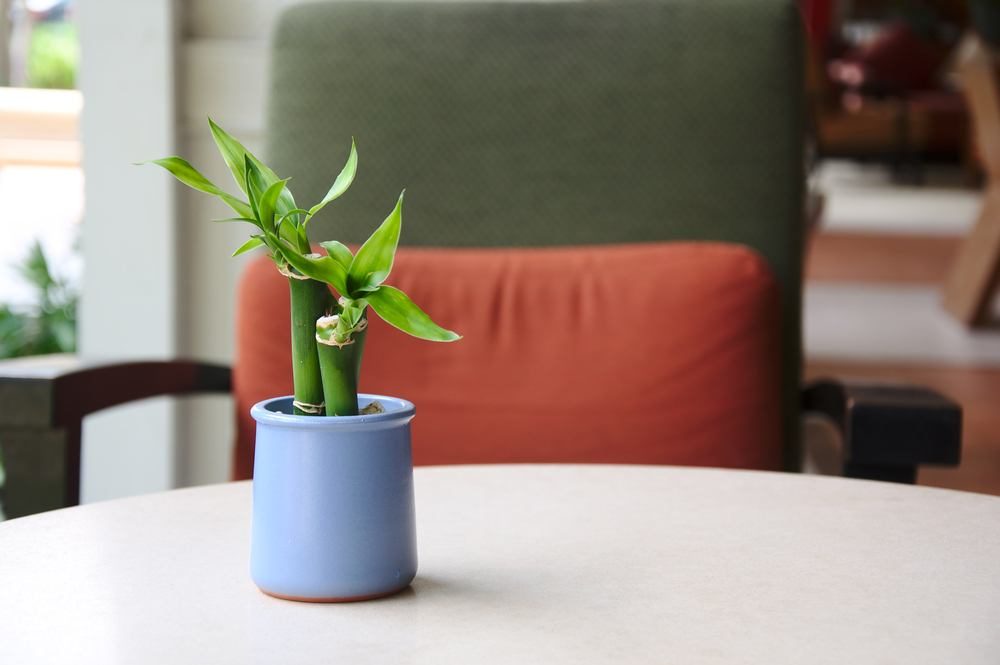When you renovate your home, the goal is to make your living space more comfortable and stylish.
But, did you know that your home renovation could also affect your health, wealth, career and relationships?
This is known as Feng Shui. And by following the principles of Feng Shui and applying it during your renovation, it is possible to improve the balance of energy in your home.
When it comes to home renovation, you want to get the maximum benefit for your money. That means hiring the right professionals for the job, using the right building materials, and yes, even having the perfect balance of Feng Shui in your home.
But just what is Feng Shui? What should you be aware of when renovating your home? And how can you renovate your home to stimulate positive “chi”?
Table of Contents
What is Feng Shui?
In a nutshell, Feng Shui, or geomancy is a Chinese philosophy and a guide to creating a harmony and balance between positive and negative energy flow around you, or more commonly known as the yin and yang energy.
Yin and yang are two opposite energies with different properties and striving for a harmonious interaction between yin, the passive and negative force, and yang, the active and positive force, are the main foundations of Feng Shui.
Proper placement of items and objects, such as mirrors around your house will also help to balance the “chi” – or energy – of your home. This in turn, affects your own personal chi, including the success of both your personal and professional life. So whether you believe it or not, Feng Shui affects your everyday life and those around you.
Feng Shui can be complicated and complex. If you have ever visited a WOFS (World of Feng Shui) store in a shopping mall, you would know that the subject matter can be highly detailed, involving specially-designed Feng Shui compasses and bagua maps to work out the Feng Shui energy.
Whether you are a believer of Feng Shui, or think that it’s just superstition, we don’t expect you to have such equipment. So, to make it simple, we have distilled some basic Feng Shui rules when doing your home renovation.
Main door allignment and position
As the main door serves as the main entry point of chi to your home, you should always avoid aligning your main door to other doors (especially the back door) or windows. This is because chi needs to fill your home with nourishing energy.
If your floor plan puts the front door directly facing the back door, it will cause chi to flow in and out hastily.
Instead of encouraging chi to have the proper chance to fill and cultivate your home, your house won’t have enough chi to sustain itself.
Also, ensure that your door is strong, made out of a strong hardware and painted with fresh paint, and not rusty and breaking apart.
Doors and windows aside, it’s also best to keep staircases away from the main door because according to the philosophy of Feng Shui, there should be a clear pathway for chi to flow when you open the main door.
If your main door is close to the stairs, chi will instead move to the higher or lower floor, leaving the main floor and entryway absent with proper Feng Shui energy.

Kitchen Feng Shui
The kitchen is one of the three important pillars of a good Feng Shui floor plan (the bedroom and bathroom being the other two) because it’s where nourishing food is prepared and cooked to provide energy for you and your family.
The kitchen is also important because it houses the 5 elements of Feng Shui which are:
- Fire (stove)
- Water (sink and fridge)
- Wood (table)
- Earth (tiles)
- Metal (metal handles, cooking equipment)
So, if you’re going to renovate your kitchen the Feng Shui way, there are some important notes that you should take heed.
For starters, the position of your kitchen within the house is highly important.
Ideally, you’ll want a kitchen position that’s closer to the back door of your home or one that’s positioned to the east or south. Avoid positioning your kitchen at the front of your house or close to the front door as this can signify eating and nutritional problems, while it also encourages guests to leave promptly after eating.
As bathrooms are where body waste is disposed, they are considered as a negative energy source, so having a bathroom that is facing your kitchen is one of the worst kitchen renovation mistakes you can make.
Last but not least, the kitchen stove represents the health and wealth of your home and proper placement of the kitchen stove is very important.
As the stove represents the fire element, it’s best to separate it from water elements like a fridge and sink. Have them separated by a small margin or have something in between to balance the two opposing forces. Also, place the kitchen stove at the east side so that it will be the direction that you’ll be facing when you cook.
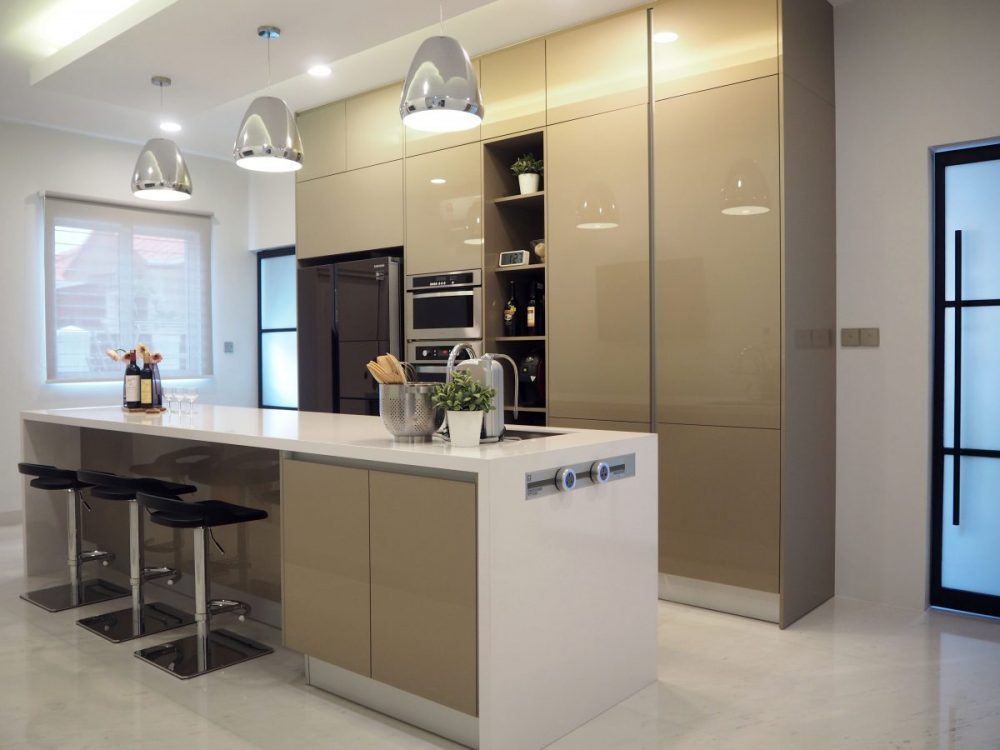
Bedroom Feng Shui
As with the kitchen, your bedroom shouldn’t be facing the bathroom (if you don’t have a choice, keep the bathroom door closed).
And, bedrooms (the master bedroom in particular) shouldn’t be on top of bathrooms and the kitchen.
Ideally, bedrooms should be in equal size otherwise it might instil a sense of inequality as well as displeasure for the inhabitants in the room.
Design aside, of course the bedroom should have enough sensual energy, while it should also be calming to promote sleep. Therefore, ditch anything that can be distracting like televisions, computers, exercise equipment, paperwork and clutter.
Bedrooms should also be brightly-lit with windows that allow natural sunlight to enter during the day, and also use the right bedroom colours to elevate your chi based on your bagua area and personal feng shui element.
For instance, if you belong to the wood element, it’s best to avoid fiery colours like red and orange as they belong to the fire element, and opt for blue and brown as they belong to the water and earth elements respectively.
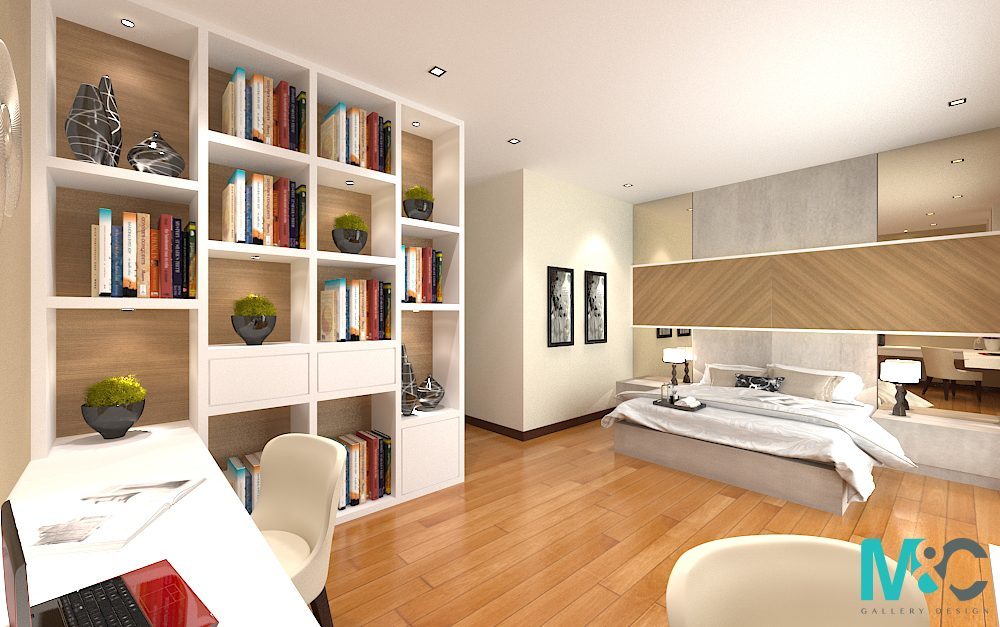
Bathroom Feng Shui
As previously mentioned, bathrooms shouldn’t be facing the kitchen or the front door as they are considered bad Feng Shui.
Apart from that, if your bathroom is at the centre of your house, you should consider moving it, because the centre of the house is where both yin and yang are the most heavily concentrated at.
To promote positive chi energy in your bathrooms, keep the bathrooms spotless and clutter-free. Also take the effort to beautify the aesthetics of bathrooms, including adding aromatherapy essential oils and plants.
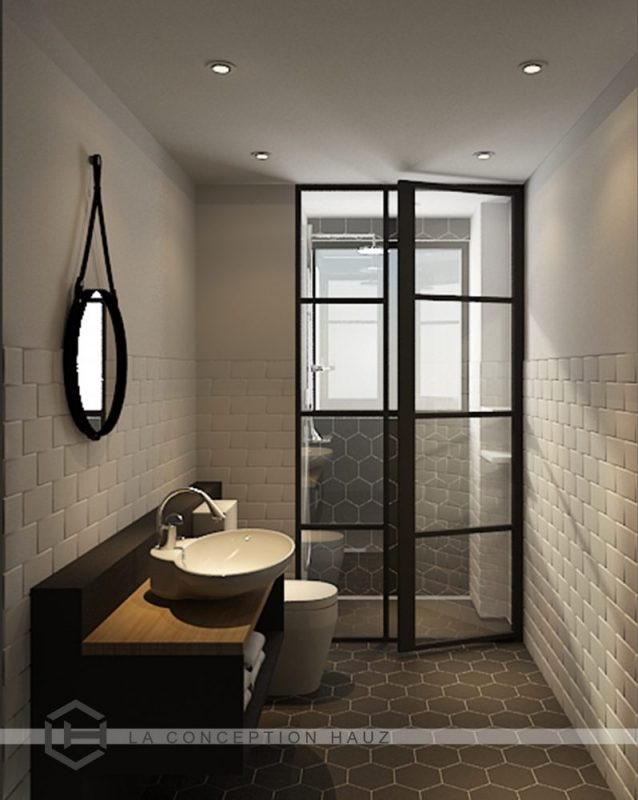
Colour
Colour meanwhile, is a bit more complex as each colour belongs to a specific element in Feng Shui namely, fire, water, earth, wood and metal.
On top of that, each element also belongs to specific areas of your home according to the bagua map. Therefore, using the right colour to strengthen the right energy in your home will promote strong Feng Shui energy.
To give you a rough sketch of it all, here’s a basic guide:
| Element | Description | Colours |
| Fire | Associated with energy and activity, but it can also create negative energy like anger and frustration. The south, northeast and south-west bagua areas are good areas to decorate with colours of the fire element. | Red, orange, purple |
| Earth | Can help to create stability and nourishment. The northeast and south-west bagua areas can promote strong earth energy. The northeast and south-west bagua areas can promote strong earth energy. | Brown and sandy/earthy colours. |
| Wood | Encourages tranquillity, growth and inner change. The south and south-east bagua areas benefit from the wood element. | Green and brown |
| Water | Stimulates calmness and concentration, help create more privacy while slowing heart rate and blood pressure. The water element is most dominant in the north, east and south-east bagua areas. | Blue and black |
| Metal | Can support carefulness as well as increase mental sharpness and help to eliminate distractions. The west and north-west bagua areas are where the metal element is most dominant at. | Grey, silver and white |
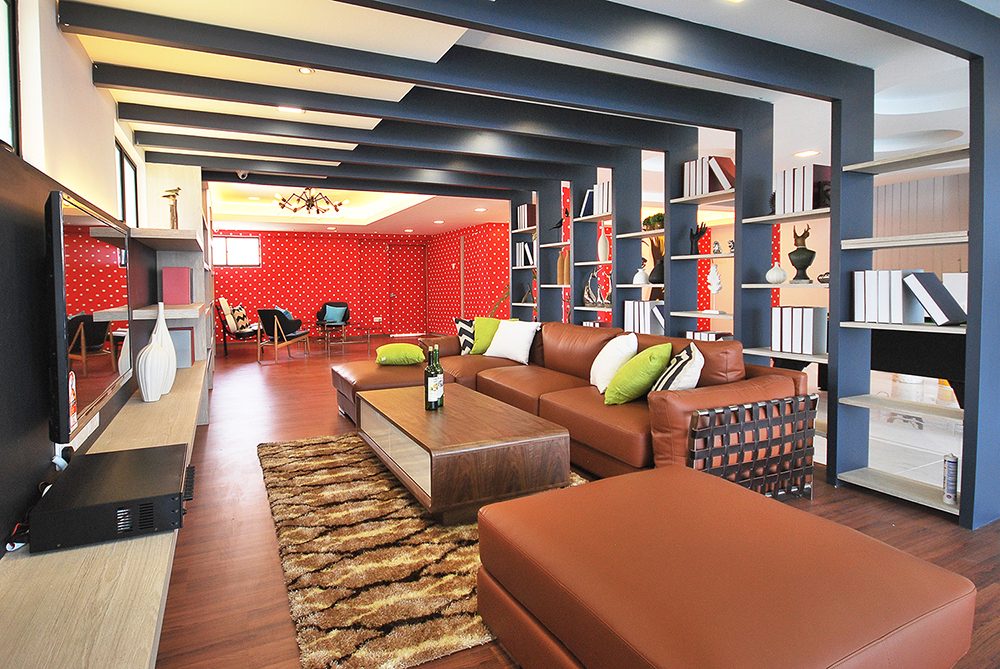
Do you need Feng Shui items?
One of the common misconceptions about having a home with strong Feng Shui energy is that you need to fill your home with artefacts.
Chinese coins, bells, dragon ships, crystal ball fountains, and Chi Lin – are some of the many items that will look awkwardly out of place, especially if you want a modern-looking decor.
The truth is that you can have a home with strong Feng Shui energy without sacrificing a modern design style.
Always remember that the nucleus of Feng Shui is about striving to create a harmonious balance where everything should be complementing each other.
To achieve this, it’s important that you understand the wisdom of the 5 Feng Shui elements. Having proper knowledge of this will give you a better visualisation of what you need to create an environment where light, space, shapes, images and colours can all combine to give your home a strong boost of Feng Shui energy.
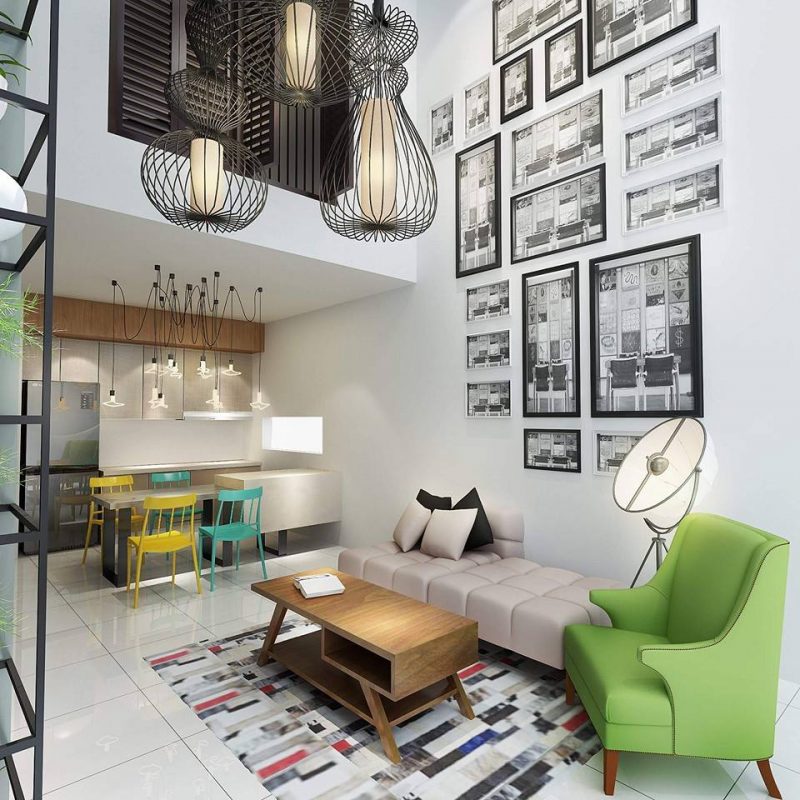
Other Feng Shui red flags to avoid
If you have a long and wide corridor, make sure that your corridor is wide as narrow corridors stagnate chi. Also ensure that the corridor isn’t dark and is always brightly lit, either through natural light from windows, or artificial lights.
Doors shouldn’t be facing one another on the corridor as a direct alignment of doors will mean that rooms won’t be filled with enough chi.
Space, light and colour all play major roles in Feng Shui. Rooms that are spacious and have a generous amount of open space attracts more positive chi flow, so do rooms that are brightly-lit with plenty of windows to allow natural light to enter. Space also applies to stairs, don’t have stairs that are too cramped as stairways should be spacious, curved and should also feel safe.
Last but not least, remember that the energy of that area will affect your personal chi too. Rooms that are messy will instil negativity by making you feel restless and uneasy, so it’s important that you organise your clutter making keeping the area squeaky clean and tidy.
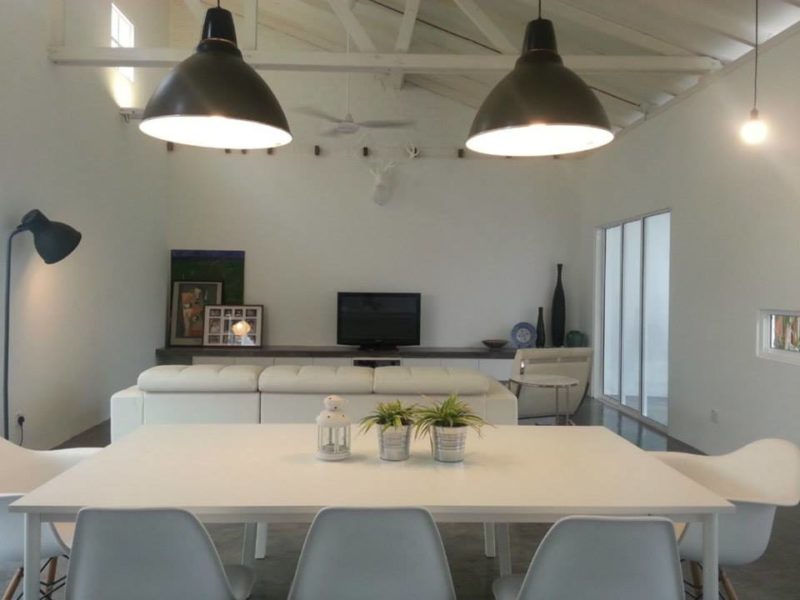
Conclusion
Feng Shui can be a complex field with lots of rules. But if you understand the basic principles, you can apply that knowledge during your home renovation to positively influence your life.
In the end, it’s all about improving the flow of chi. When renovating, always remember that chi should always be flowing smoothly and perpetually. A good rule of thumb is to imagine it like water flowing in your house, it should be able to flow and fill every nook and cranny of your home without much obstruction from furniture and awkward designs.


